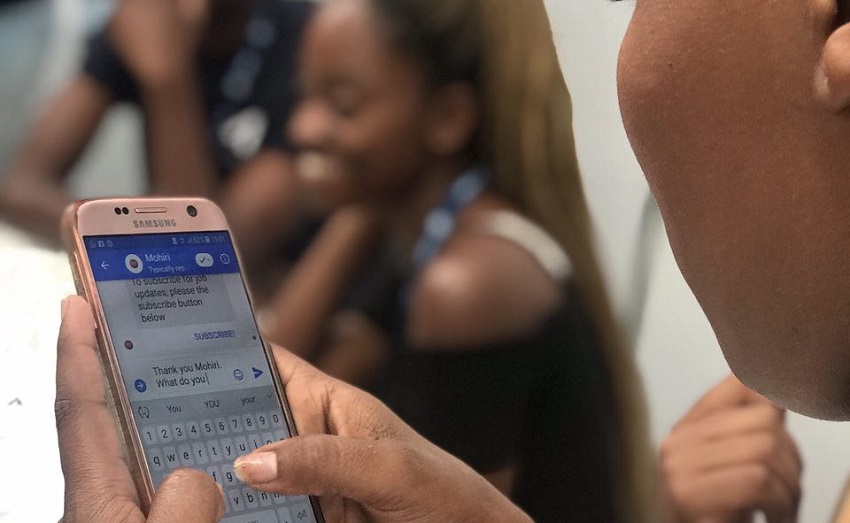Botswanan startup Mohiri has developed an AI-driven personalised job alerts service that connects subscribers with relevant vacancies through their mobile phones.
Launched in November 2018, Mohiri is a social media-based chatbot that allows users to sign up for personalised alerts, in a bid to efficiently tackle unemployment in Botswana.
The startup, which recently won the Gaborone leg of the Seedstars World competition, had come together previously, with the team building chatbots for businesses and government agencies without getting much traction.
Director Thato Kasongo said this forced it to change its approach.
“We started looking at alternative use cases and we decided that since corporate didn’t care much, we’d just start building chatbots to serve society,” he said. “We settled on Mohiri because unemployment is such a big problem in Botswana, and since a lot of Botswanans are increasingly consuming services online, this became a good fit.”
Instead of launching with a website and a mobile app, the team decided to build a social media chatbot instead.
“This is just because social media is the cheapest part of the internet for most Africans, because mobile network operators subsidise the cost,” Kasongo said. “Therefore we could reach more people without the limitations of expensive data costs.”
That decision appears to have paid off, with Mohiri’s social-first approach taking it to 20,000 subscribers pretty quickly. A couple of hundred jobs have already been secured using the service, and Kasongo is expecting strong growth over the next year.
“Once we finalise our move into USSD and partner with local telcos, this number will skyrocket as they will promote this service to their users as well through their own mobile network. This is a potential of more than 400,000 people in the next few months,” he said.
The self-funded startup, which was part of this year’s Tony Elumelu Entrepreneurship Programme (TEEP), is relying on these steps forward for its eventual monetisation as well. As Kasongo says, right now Mohiri is a “cost centre”.
“We have decided to overlook short term monetisation in the interest of growth and user acquisition. It takes a great deal of guts to make such a sacrifice without investor funds to support you, but somehow we convinced ourselves that we would survive the storm, and we did,” he said.
“For 2020, we will be launching a few products and we anticipate very positive market feedback. Hopefully, this then allows us to reinvest in improving the product and strengthening our team.”
So if users have got used to it while it is free, how do they plan to they flip people? Kasongo says Mohiri will redefine “free” and introduce new paid tiers for things such as unlimited alerts on a per month basis.
“Subscription payments can be done through a chatbot that is connected to the mobile network operator. This means users will be able to buy a plan, directly through the chatbot, using their mobile airtime,” he said.
“For most African countries, this is a strategy that works because where mobile network operators have a dominant presence and data prices are high, USSD is usually the most common and easiest method of transacting. This is true for Botswana as well as many other countries in the region. People use USSD to pay for utilities and to access their bank accounts to send each other money.”
Beyond pinning its hopes on this, Mohiri also plans to use these partnerships with local network operators to get access to a larger audience and broaden its user base.
“Through a profit-sharing agreement, we will inspire our partners to market Mohiri as a service to users on their networks as well,” said Kasongo.
The startup currently only operates in Botswana, which Kasongo said is a perfect place to build and test because of the country’s small population.
“However, we are looking at scaling into Namibia and Zambia within the next 24 months – Namibia because it’s very similar to Botswana in terms of demography, and Zambia for the population, which I think will be a good challenge for us as a business,” he said.


